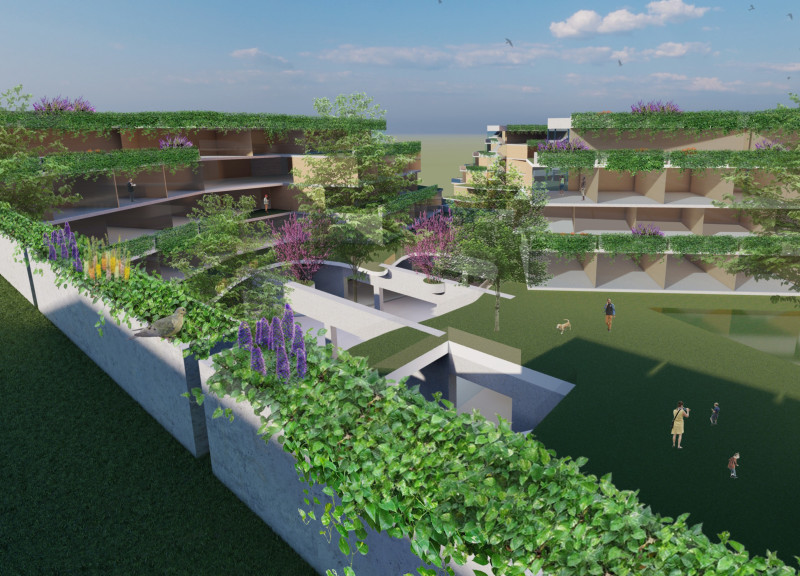5 key facts about this project
Sustainability and community engagement are key components of this design. By situating the project near the Balboa Park BART station, it facilitates easy access to public transportation, thereby encouraging environmentally friendly commuting patterns. This location strategically positions the development within a broader transit-oriented framework, minimizing reliance on automobiles.
Modular construction is a defining feature of this project, utilizing cross-laminated timber (CLT) as the main structural element. This choice promotes a reduced carbon footprint and minimizes waste during the building process. The concrete foundation offers stability and durability, while extensive glazing is incorporated to enhance natural lighting and create visual connections to the outside environment. The use of natural finishes throughout the interior spaces, such as wood, creates a comfortable living atmosphere.
One of the project’s distinctive aspects is its attention to communal spaces, emphasizing interaction among residents. The inclusion of outdoor common areas, garden terraces, and social zones provides opportunities for community bonding and promotes a sense of belonging. Additionally, features like roof gardens, solar panels, and rainwater harvesting systems highlight the project’s commitment to ecological practices.
The variety of residential units is tailored to accommodate diverse income levels and family structures. With studio, one-bedroom, two-bedroom, and three-bedroom apartments, the design meets the needs of varying demographics. The modular approach also allows for adaptability in unit configurations, which can evolve to address changing community requirements.
The Balboa Valley Housing project exemplifies a contemporary approach to urban living. Its focus on affordability, sustainability, and community interaction distinguishes it from other housing developments. To gain further insight into this project, including architectural plans, sections, and detailed designs, readers are encouraged to explore the comprehensive project presentation.


























